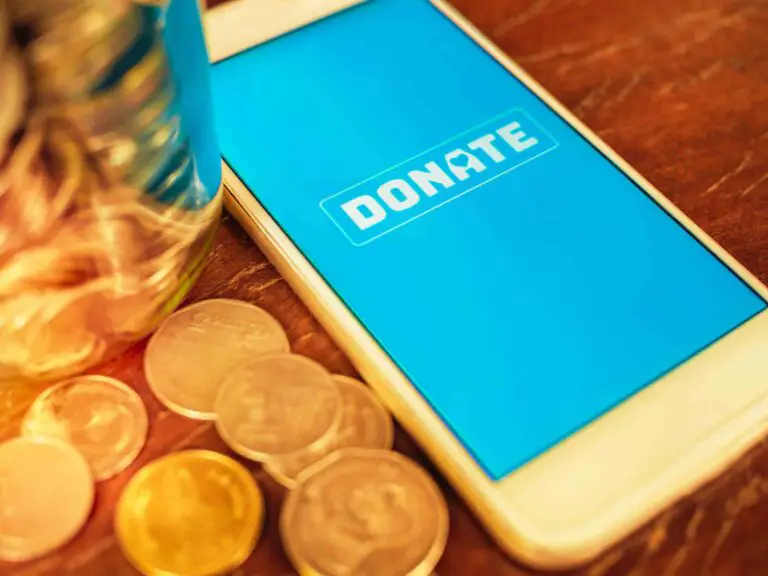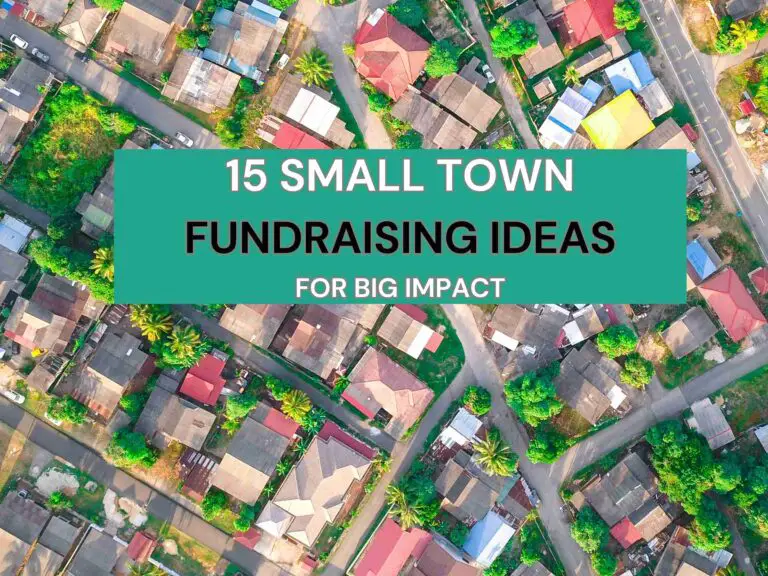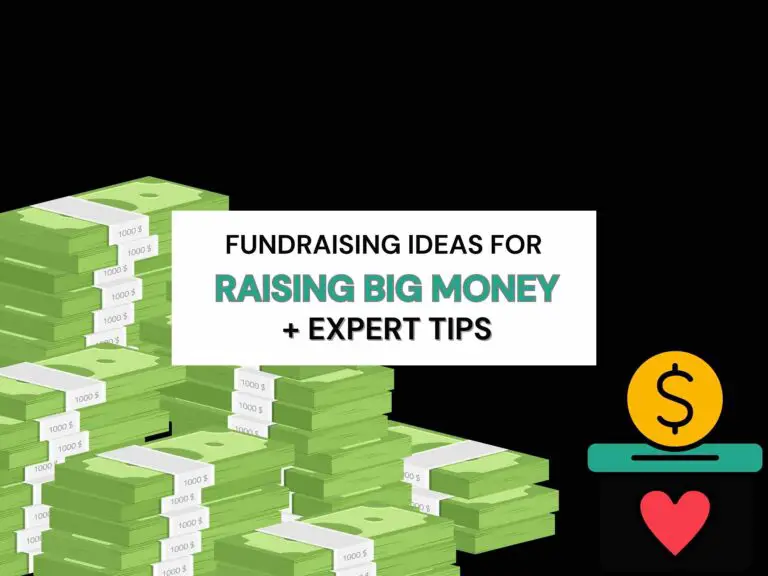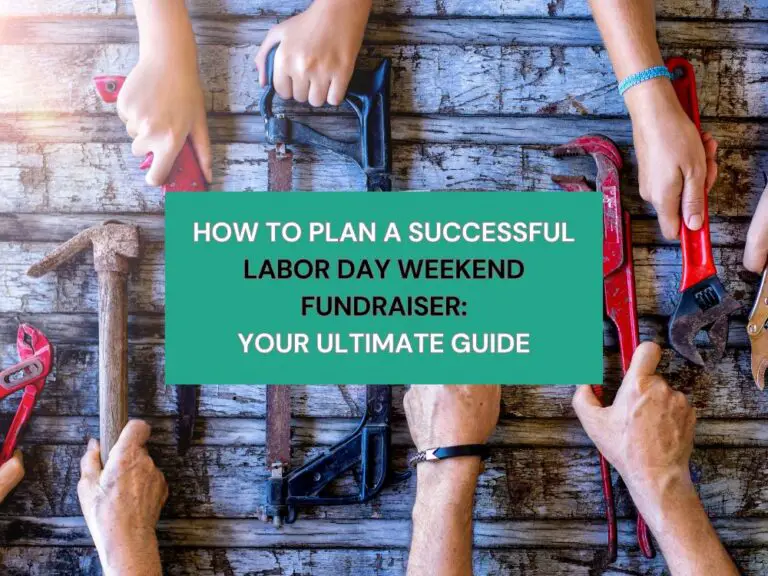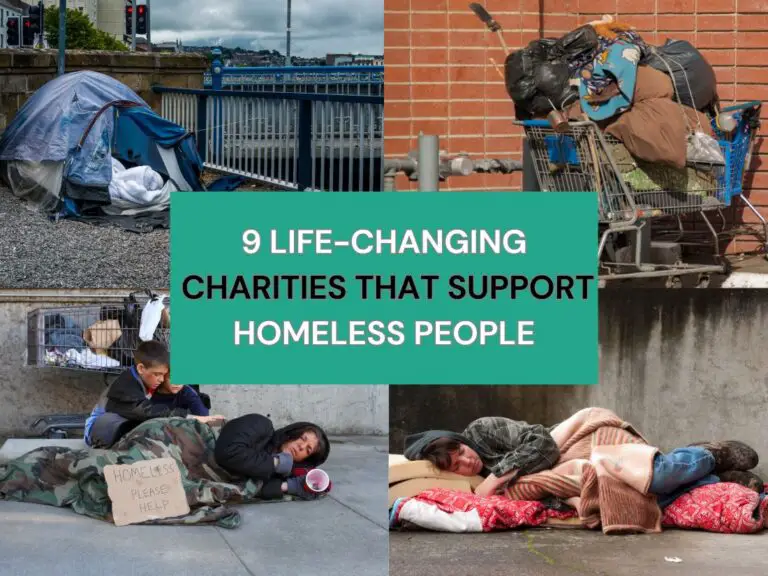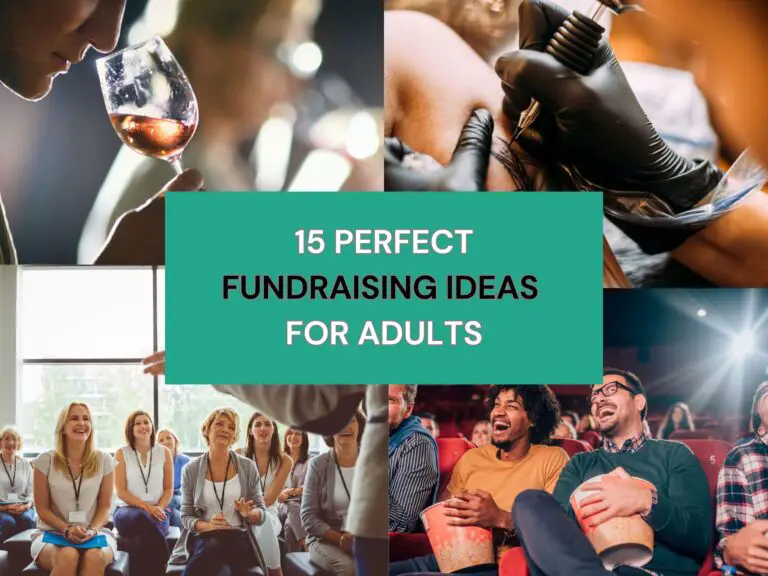15 Easy Mental Health Fundraising Ideas for Impact
This post may contain affiliate links. If you purchase through one of these links, I may receive a small commission at no extra cost to you. As an Amazon Associate, I earn from qualifying purchases.

Looking for mental health fundraising ideas that raise money, build awareness, and bring people together?
Tired of using the same old events that feel more like obligations than impact?
Wondering how to create fundraisers that support mental wellness while also engaging your community? You’re not alone.
Most organizers face the same challenge: plenty of passion, but not enough powerful ideas to turn it into lasting change. That’s why finding the right mental health fundraising ideas matters more than ever.
Mental health affects everything, how we think, feel, connect, and cope. And yet, it’s still misunderstood, underfunded, and often ignored. Millions of people battle anxiety, depression, trauma, and stress every single day, often in silence.
That’s why awareness and funding matter. Because without both, people don’t get the support they need. Therapy remains out of reach. Community programs stay underdeveloped. Schools and nonprofits lack the resources to help those who are struggling.
And if you’re here, you probably already know this.
You want to do something. You want to raise awareness. You want to raise money. But you’re stuck with the same old bake sales and wellness walks that don’t make a real impact. You need better. You need real, powerful, creative mental health fundraising ideas that work.
That’s what this guide delivers. These 15 ideas aren’t vague suggestions, they’re clear, actionable, and designed to raise real funds while creating healing, connection, and visibility. Whether you’re organizing for Mental Health Awareness Month in May, World Mental Health Day on October 10, or any day of the year, this list will help you plan with purpose and raise money that matters.
Key Takeaways
Each idea is designed to raise money and create emotional impact, using healing, connection, and creativity as core elements.
These are simple, structured instructions for planning, promoting, and executing each fundraiser, whether you’re working with a school, nonprofit, or community group.
This article contains 15 fundraising ideas specifically designed for Mental Health Fundraising events. To maximize participation, schedule these in May, Mental Health Awareness Month.
15 Effective Mental Health Fundraising Ideas to Try Now
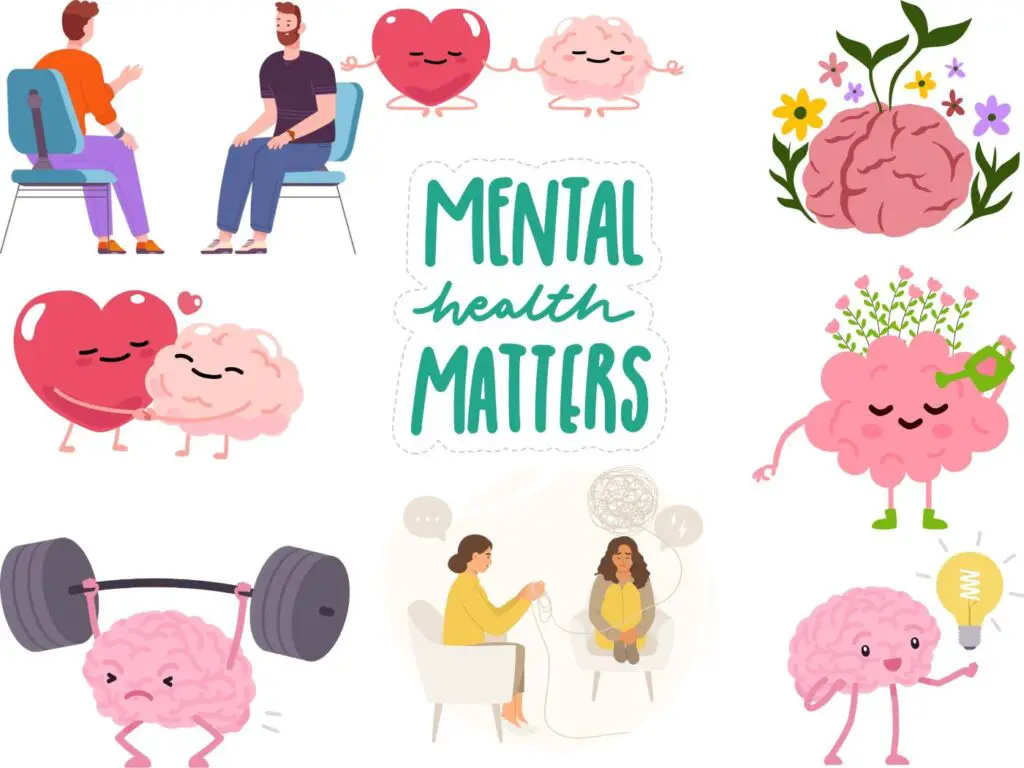
This is your go-to guide for bold, effective, and healing-centered mental health fundraising ideas that connect people, raise real money, and spread awareness that lasts.
Whether you want fast cash or deep community engagement, this article has you covered from start to finish.
This guide gives you 15 high-impact ideas, each one broken down clearly so you know exactly what to do, why it works, and how to launch it right now.
From therapy raffles and match drives to community walks, kids’ art events, and smash-room-style healing experiences, this list gives you more than ideas, it gives you action plans.
Each concept is crafted to make a real emotional and financial impact, while also building mental health awareness in a way people remember.
Let’s dive in!
1. Heal & Win Raffle
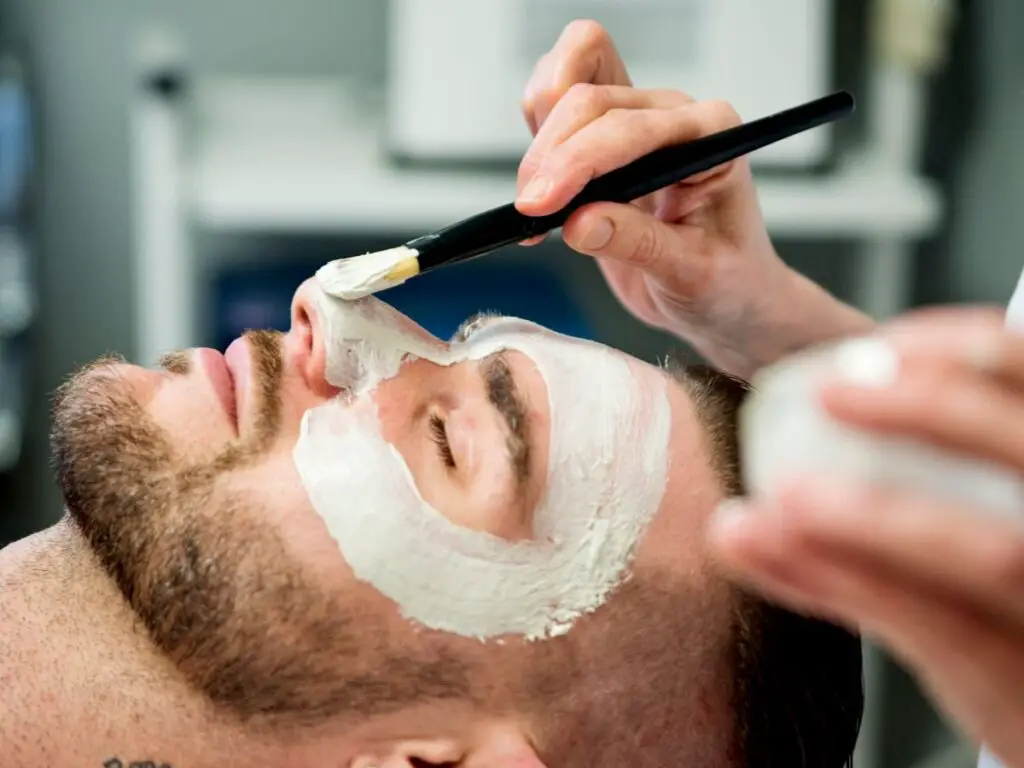
This fundraiser is fast, effective, and meaningful. The Heal & Win Raffle brings together everything that works, people enjoy the chance to win something valuable, local businesses benefit from visibility, and mental health programs receive much-needed support.
It connects self-care with giving back by offering prizes that promote well-being, such as therapy sessions, spa treatments, or fitness passes.
Whether you run it in a small town or a large city, in person or online, this idea is flexible, affordable, and highly rewarding.
The more attractive and relevant the prizes are, the more tickets people will buy, and with the right promotion and a clear message, you will have a successful raffle fundraiser.
How it works:
- Ask local businesses to donate wellness-related prizes (Spa gift cards, massage sessions, yoga/fitness class passes, meditation app subscriptions, aromatherapy kits)
- Bundle items into 3–5 big prize packs
- Sell tickets: $5 each or 5 for $20
- Use QR codes and mobile pay options
- Share daily prize teasers and countdowns
- Run the raffle for 7–10 days
- Host a live or virtual winner draw
- Post winners and thank sponsors online
2. Break the Silence Bash

Smash rooms are growing in popularity for a reason!
They give people a safe and memorable way to release built-up stress and emotions.
Break the Silence Bash takes that same idea and turns it into a powerful mental health fundraising event.
It’s part emotional release, part awareness, and part fundraiser. Participants are invited to write down a fear, stigma, or negative thought on an item, then physically smash it in a safe, controlled space.
The experience is both symbolic and healing, creating a strong emotional impact while also raising money for mental health support.
How it works:
- Partner with a local smash room or Set Up A Car Smash
- Charge per smash session ($10–$25, depending on time and props)
- Add a message wall where people post what they’re letting go of
- Use slow-mo videos and testimonials for social sharing
- Bring in wellness vendors to pay for booth space
- Promote it as a stress relief event tied to mental health awareness
Related Articles:
Best Charities for Women’s Mental Health
Charities for Children’s Health
3. 100 Voices in 10 Days
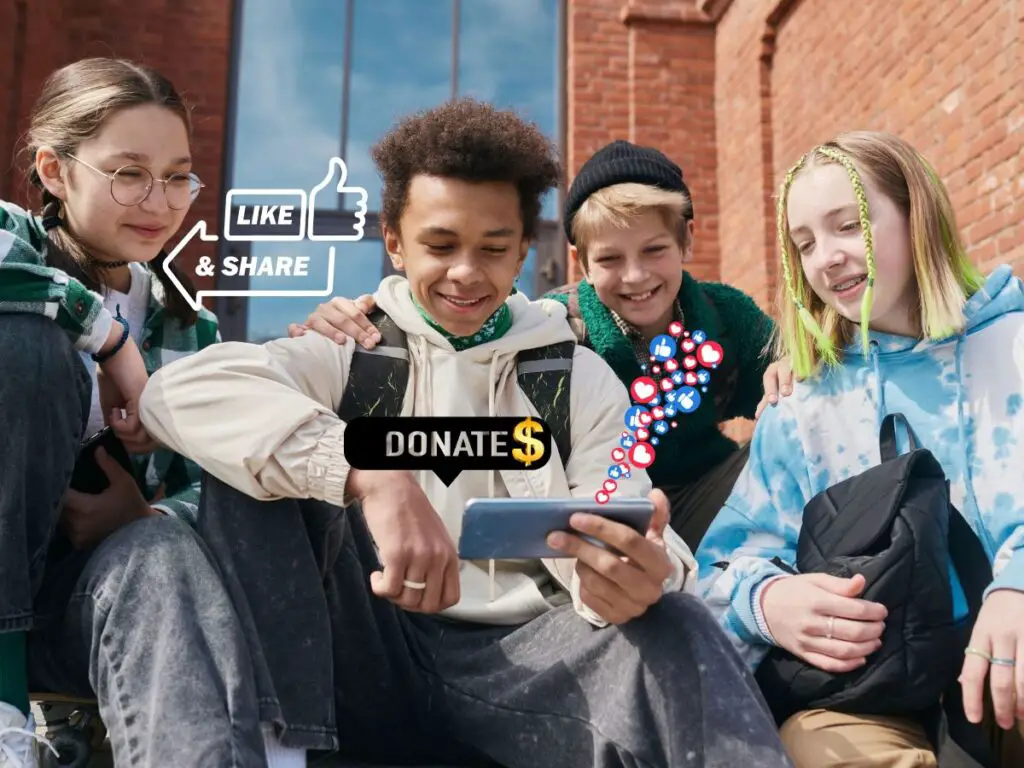
Fast, focused, and designed to go viral, this is a fundraiser you can start with no money.
This fundraiser works because it taps into what teenagers already love—challenges, social media, and public support for causes they care about.
A peer-to-peer donation drive with a clear goal (like getting 100 donations in 10 days) gives teens a purpose, a timeline, and a reason to share.
It’s simple: donate, tag a friend, and post why mental health matters.
They get the social validation they thrive on while spreading awareness and raising real funds.
Add a bold, shareable hashtag like #100VoicesForMentalHealth to boost visibility and keep the momentum going.
With the right energy, this challenge can take off fast and make a difference.
How it works:
- Launch a 10-day digital campaign with a donation goal
- Use a simple call to action: “Donate. Share. Tag a friend.”
- Give donors a branded graphic or story template to post
- Feature a daily donor shoutout on your page
- Track progress publicly: “68 voices out of 100 reached!”
- Offer a prize or gift for the 100th donor
- Set donation tiers, but even $5 counts to keep it accessible
- Wrap it up with a thank-you video featuring key stories
4. Sponsor a Safe Space

This is one of the most powerful and transparent mental health fundraising ideas you can run. Donors often wonder where their money goes, but with this model, the impact is clear.
Each contribution directly funds a therapy session, support group, or crisis counseling for someone who truly needs it.
It’s straightforward; donors sponsor a session, and someone receives help.
You can create simple giving tiers, $50 for one session, $250 for five, and so on, so supporters know exactly what their money provides.
This type of fundraiser builds trust and makes a real difference. It also gives you the chance to share real stories (with permission), photos, and outcomes that show the value of every dollar raised. You’re not just asking for donations—you’re helping open the door to healing.
How it works:
- Set donation tiers that fund actual services ($50, $100, $250+)
- Share clear impact statements: “$50 = 1 counseling session”
- Use real-life stories (with privacy respected) to build an emotional connection
- Let donors give in honor of someone or anonymously
- Offer printable or digital “Mental Health Hero” badges
- Track donations publicly with a virtual wall or leaderboard
- Create a monthly donor option for sustained support
- Promote heavily on social media with weekly impact updates
5. Light-Up the Mind Gala
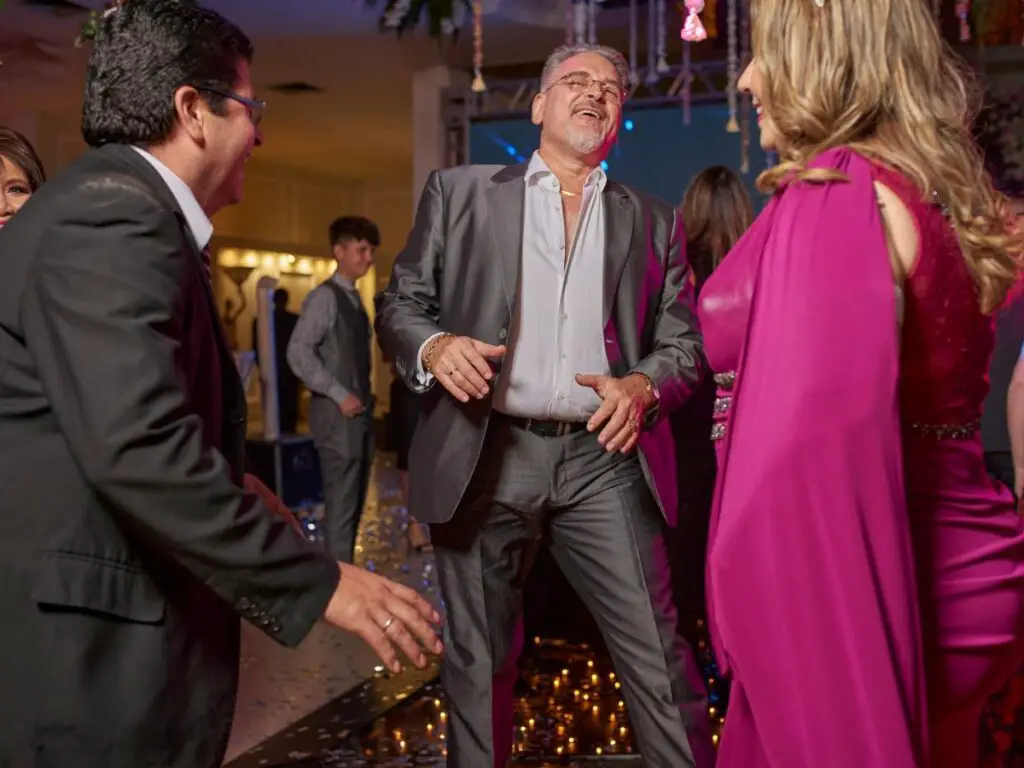
This is a high-impact, high-dollar event that brings people together in a big way. It gives your cause a face and a voice.
You don’t just raise funds—you raise the standard. This gala is for people who want to support mental health while enjoying a night of food, stories, music, and inspiration.
It works best when you keep the focus tight: one night, one clear goal, one bold reason to give. Every part of the evening should speak to the mission.
Bring in speakers who’ve lived it. Showcase how the funds will be used. Add donation drives and live auctions to boost the total. Dress it up, make it powerful, and make it worth every dollar.
How it works:
- Book a venue that’s elegant but affordable
- Set a ticket price: $75–$200 based on audience
- Get sponsors to cover costs in exchange for promotion
- Invite a keynote speaker with lived experience
- Add a live auction: art, vacations, gift cards
- Serve food, drinks, and live music
- Share impact stories with visuals and video
- Open donation booths or mobile giving during the event
- Publicly track donations in real time to hit fundraising targets
6. Stronger Minds Challenge
This is one of those mental health fundraising ideas that builds energy every single day.
It’s a 30-day challenge built around small actions that support mental wellness—walking, journaling, drinking water, meditating, and more. People pay to join, track their progress, and raise money as they go.
Think of it like a fitness challenge, but for the mind. You give participants a printable or digital tracker, daily prompts, and access to a private group. They feel better, they raise funds, and they get the power of community. It’s low-cost, repeatable, and very shareable.
How it works:
- Create a list of 30 simple wellness tasks (1 per day)
- Charge a sign-up fee ($20–$50) for individuals or teams
- Offer a printable or digital challenge tracker
- Encourage participants to get sponsors or pledges
- Build a private Facebook or WhatsApp group for support
- Share daily mental health facts or prompts
- Give a prize to the top fundraisers or the most consistent participants
- Promote wins with weekly highlight reels on social media
7. Art for Inner Peace

Art heals. And when it becomes part of a fundraiser, it unites people, too.
This idea taps into that, especially in schools, community centers, or open public spaces. People of all ages create artwork around mental health themes: hope, healing, emotions,and strength.
Then, you turn the art into a pop-up gallery or online auction. Families come. Friends come. They buy the pieces or make donations on the spot. It’s a beautiful, low-pressure way to talk about mental health and raise money in the same breath.
How it works:
- Invite schools, local artists, and the community to submit artwork
- Set a theme like “What Healing Looks Like” or “Feelings in Color.”
- Display all art in a public space or online gallery
- Attach a donation link or auction option to each piece
- Sell prints, postcards, or merchandise from top entries
- Add a “People’s Choice” award to boost engagement
- Offer a creative corner at the event for live art demos
- Partner with art stores or studios for supply donations
8. Shop for Sanity

This is one of the most business-friendly mental health fundraising ideas because it raises money without asking people to donate directly.
Instead, supporters make regular purchases, and a percentage of those sales goes toward your cause.
By partnering with local cafés, salons, fitness studios, and shops, you create a win-win: businesses agree to donate a portion of their profits, usually 10% to 20%—for a day, and in return, they receive increased foot traffic, online promotion, and community support.
It’s simple, effective, and easy to organize, especially if you turn it into a larger “Mental Health Market” weekend or themed event.
How it works:
- Reach out to local shops and ask them to join the campaign
- Choose one day or a weekend for the event
- Each store donates a percentage of sales (set minimums if needed)
- Promote all stores as “Supporters of Mental Health”
- Provide posters, window stickers, and shareable graphics
- Create a map or list of all participating locations
- Post thank-yous and sales totals to show impact
- Offer shoppers a small token (wristband, sticker) as a thank-you
9. Voices Unmasked Summit
This event uses the power of real conversation to raise both awareness and funding.
It brings together speakers, mental health professionals, and individuals with lived experience to share honest, impactful stories.
Whether held online or in person, the event is built around meaningful topics like anxiety, burnout, trauma, resilience, and recovery.
You can sell tickets, bring in sponsors, and offer valuable content through breakout sessions, live Q&As, and recorded replays.
When planned with focus and purpose, this kind of summit builds trust with your audience, deepens understanding, and creates lasting donor relationships, making it one of the most scalable and effective mental health fundraising ideas you can organize.
How it works:
- Pick a theme: “Unmasking the Mind,” “Breaking Through,” or “The Healing Starts Here.”
- Book speakers: therapists, advocates, survivors, and mental health pros
- Set a price for tickets ($20–$100 based on value)
- Offer group or team pricing for schools or companies
- Secure sponsors to cover tech or venue costs
- Create downloadable workbooks or resources as bonuses
- Let attendees donate during sessions or after via mobile links
- Record and sell post-event replay access for extra funds
10. Spare Change, Save Minds
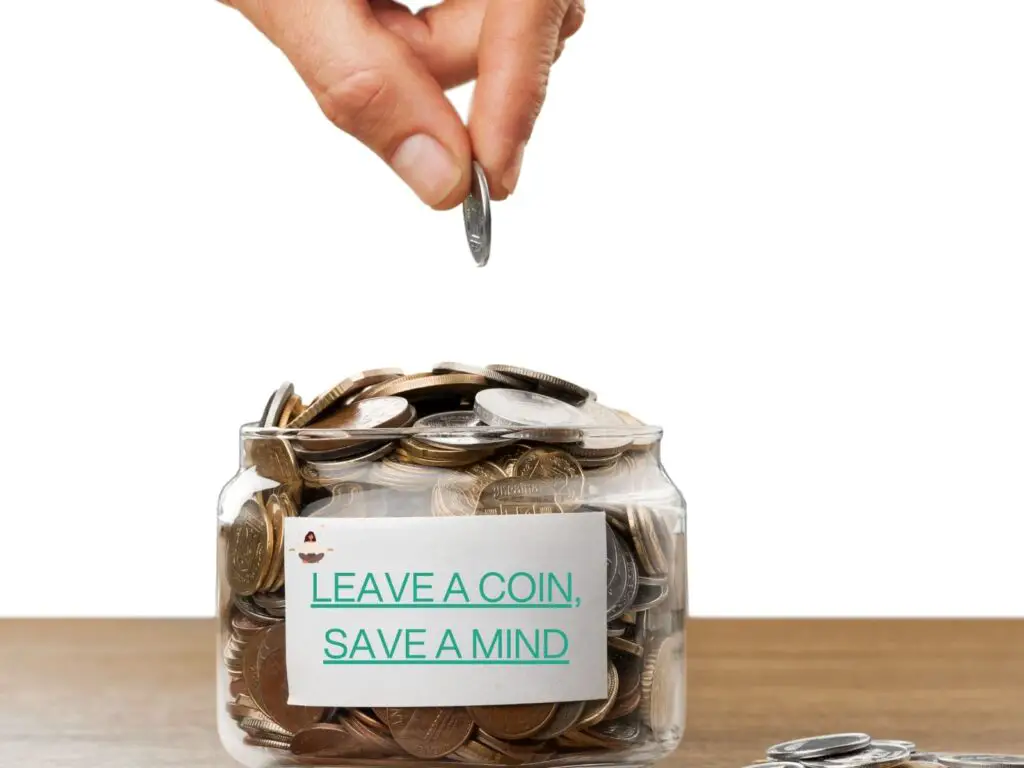
It may be an old-school idea, but it still works, especially in schools, neighborhoods, and community spaces.
Place branded donation jars or boxes in busy locations like cafés, gyms, or front desks, but make them more than just containers.
Add simple, eye-catching messages like “Leave a coin, save a mind” or “This helps someone talk to someone” to show the impact of every donation.
Include QR codes so people can donate digitally, right from their phones.
This method works especially well for students, families, and small towns where visual reminders and local pride can lead to steady support.
Just make sure the branding is strong and the message is clear.
How it works:
- Create bold, clear jars or boxes with mental health messages
- Add QR codes for Venmo, PayPal, or other digital giving
- Place jars in cafes, gyms, salons, bookstores, and schools
- Offer a sticker or card to display at checkout to thank the business
- Use a leaderboard or tracker to show which jar raised the most
- Run it for 30–45 days
- Pick a winner location and shout them out online
- Post totals and thank donors publicly to build trust
11. Color Outside the Blues
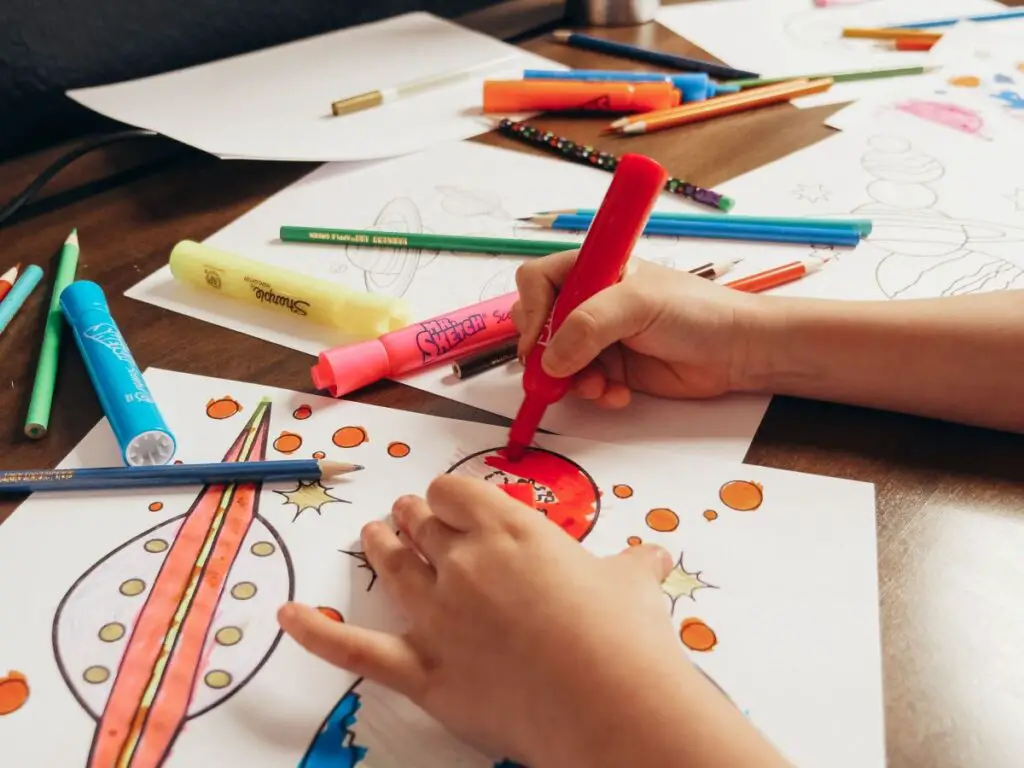
Kids often experience strong emotions, but they don’t always have the words to explain what they’re feeling.
That’s why this art-based event is so powerful, it gives children a safe, creative space to express themselves through drawing, painting, and other forms of art.
While the kids create, parents and families show their support by donating, participating, and celebrating their work.
You can host the event in a park, school, or community center and invite teachers, counselors, and volunteers to guide and encourage the children.
Turn the space into a mini art festival, with calming music, snack stations, and display areas where each child’s artwork is framed and celebrated. Families can then buy or bid on the finished pieces, knowing their money supports both the cause and their child’s confidence.
This event builds emotional awareness, strengthens family bonds, and raises funds, all while creating something meaningful and lasting for everyone involved.
How it works:
- Invite schools or families to join a weekend art fest
- Provide supplies: paper, paint, markers, and calming spaces
- Let each child create one special piece around a feeling or theme
- Frame or display the art with name cards
- Sell art to families or auction special pieces
- Offer wellness booths, snacks, and kid-friendly workshops
- Charge a flat entry fee for each participating family
- Share photos and quotes from kids to boost online giving
12. Double the Hope Match

Want fast donations? Tell people their gift will be doubled.
This idea taps into urgency and impact.
You find a major donor, company, or sponsor willing to match every dollar up to a set amount, then launch a 48-hour or 5-day campaign to meet the match.
Every donation gets doubled. Every share brings in more. And people love knowing their $25 becomes $50. It’s one of the simplest but most powerful mental health fundraising ideas out there.
How it works:
- Secure a sponsor or major donor for the match (set a clear cap)
- Launch a short, high-energy campaign
- Use big bold messaging: “$10 becomes $20. Help us unlock $5,000.”
- Set up a donation page with a live match tracker
- Post hourly or daily updates
- Thank donors in real-time on social
- Once the match is met, reveal the total impact
- Share what the funds will support (sessions, outreach, programs)
13. Wisdom & Wellness Circle

Seniors hold powerful stories: stories of love, loss, resilience, and healing, and this event gives them a chance to share those experiences in a way many never had the opportunity to do before.
In their time, mental health wasn’t openly discussed, and many carried silent struggles without support or understanding.
Now, they have a space to release, reflect, and speak openly about what they’ve lived through. By hosting a storytelling gathering, you allow older adults to share meaningful life moments connected to mental wellness.
These stories can be recorded and turned into a printed book or video series, giving the community something lasting and personal to honor. You can raise funds through event tickets, donations, and sales of the final product. It’s a deeply healing experience for participants and listeners alike, and it creates emotional connection across generations while supporting an important cause.
How it works:
- Host the event at a care center, community hall, or library
- Invite seniors to tell 5–10 minute personal stories
- Record each session with permission
- Charge a small ticket price for attendees
- Compile stories into a printed or digital “Healing Book”
- Sell the book as a fundraiser
- Offer tea, music, and quiet conversation spaces at the event
- Include a donation table with framed story quotes and photos
14. Steps Toward Stillness
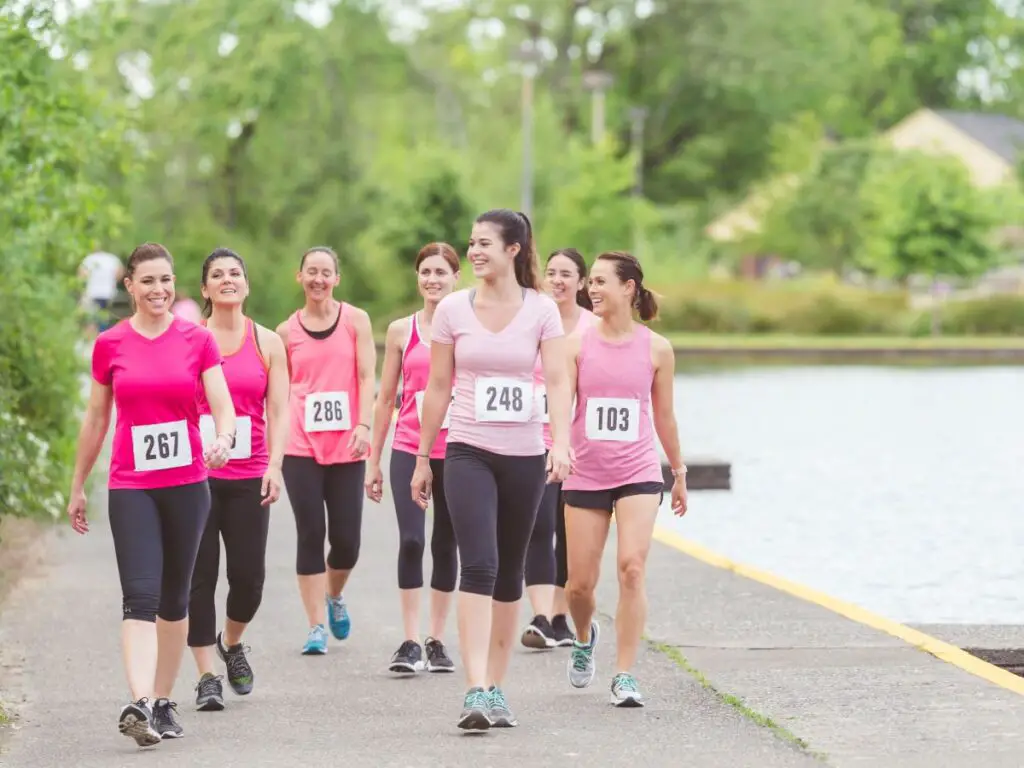
Not every fundraiser needs to be loud or competitive, sometimes, the most powerful events are the quiet ones.
This mindful walk is designed to bring awareness to mental health in a peaceful, reflective way.
Participants move at their own pace, whether solo, in pairs, or as teams, with each lap representing progress in breaking mental health stigma.
Healing stations placed along the path, like mindfulness tents, message boards, hydration stops, and soft music corners, help create a calming atmosphere.
Walkers sign up with a fee or raise pledges per lap. It’s a grounding, visible, and emotionally meaningful way to build connection and raise funds at the same time.
How it works:
- Create a 1-mile loop in a safe, walkable space
- Set up calm stations: yoga, meditation, affirmations
- Charge $25–$50 to join or raise pledges per lap
- Give each participant a “Steps for Mental Health” bib or tee
- Track team or individual progress with lap counters
- Offer prizes for most laps or highest fundraiser
- Share mental health facts along the route
- End with a group reflection and thank-you moment
15. Mind Over Myths Night

Mental health is often misunderstood because of outdated beliefs and myths. This event gives you a fun and powerful way to challenge those ideas—through a live or virtual trivia night.
Each question is designed to bust a common mental health myth while teaching real facts in a way that’s easy to remember.
Add teams, prizes, live scoring, and a few laughs to keep the energy high. People learn, connect, and donate all at once.
You can raise money through team entry fees, pledges per correct answer, raffles, or bonus round donations.
It’s the perfect mix of education and entertainment, and it works well in schools, offices, or with families who want to support a serious cause in a lighthearted way.
How it works:
- Write 30–50 myth-busting trivia questions
- Charge a team or individual entry fee ($10–$20)
- Use a live host or trivia platform
- Offer prizes for top scores or the funniest team name
- Add donation-based “lifelines” or “double points” boosts
- Share a short mental health story mid-event
- Post results, photos, and winning myths online
- Let winners choose where part of the funds go.

